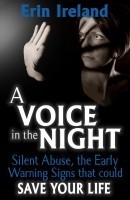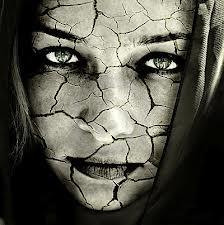Sandra Lee Dennis's Blog, page 2
November 11, 2014
The Hidden Pain of Emotional Wounds
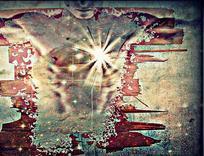 Emotional wounds can be even more devastating than obvious blows to the physical body and can have much longer-term effects. These hidden injuries pose a grave threat, not just to our physical, but also to our emotional well-being, and even to our psychological survival.
Emotional wounds can be even more devastating than obvious blows to the physical body and can have much longer-term effects. These hidden injuries pose a grave threat, not just to our physical, but also to our emotional well-being, and even to our psychological survival.
A physical blow is understandable to the mind. When someone hits you, at least you can identify the source of the pain. But, when you are psychologically abused, you hurt and do not feel safe, but cannot comprehend why. The longer it goes on, the more likely you are to obsess about the situation, to feel unhinged and to lose your confidence and trust in yourself and in your perceptions.
Psychological abuse is virtually impossible to prove. Emotional abusers have an impressive arsenal of tools for subtle psychological control and torment. Abuse can range from constant put-downs and criticism to more subtle tactics, such as deception, manipulation, withdrawal, invalidating, stonewalling, triangulating, threats to leave, revising history, or refusal to ever be pleased. A steady stream of these corrosive insults can undermine your sense of self until you begin to question your reality.
We all engage in some of these behaviors at times when we are feeling especially powerless or frightened. But for some people, these defenses are more a way of life than a reaction to unusual life stresses.
If you are involved with an abuser, it is likely that he or she is highly focused on control. To keep you in line, they routinely alternate warmth and affection with withdrawal or insults. Should you begin to question their tactics or threaten to leave, they will pull out all the stops to draw you back in.
Often, they turn the tables to accuse you of precisely what they are doing to you, casting themselves as the victim of your unbearable behavior to justify their actions. Since we naturally tend to blame ourselves when we feel disoriented or are in pain, the finger-pointing adds fuel to the fire of deteriorating self-confidence.
Acknowledging Emotional Abuse
If you have been deceived, abandoned or betrayed in an intimate relationship, acknowledging the emotional abuse involved is central to understanding what has happened and to recovering. By unilaterally leaving or betraying you, the person you likely trusted most in the world has inflicted a life-changing, destructive blow to your well-being.
As sudden as the shock of discovery of their deceit or unfaithfulness may be, your undermining has probably been going on for some time. You likely have been living in an atmosphere of deception and manipulation. Mixed messages of caring and contempt have already short-circuited your neural wiring with conflicting, yet urgent, approach and avoid signals toward your partner.
When the final blow is administered, the trauma leaves you shattered and dazed, unsure who you are or who you were in relationship with. To your traumatized mind your former partner becomes both your executioner and your potential savior from the bewildering pain. The depth and elusiveness of the invisible emotional wounds makes them difficult to recognize and understand, and equally difficult to heal.
If this is your situation, please reach out for the help you need to family, friends, or a professional who is familiar with the many guises of emotional abuse and trained in dealing with psychological trauma.
Adapted from “Love and the Mystery of Betrayal” —now available in print and ebook.
The post The Hidden Pain of Emotional Wounds appeared first on .
October 18, 2014
A Reply to: “Stop Being a Victim!”
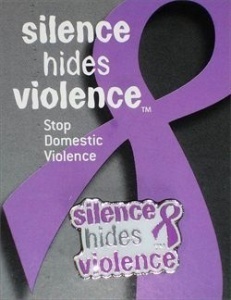 October is Domestic Violence Awareness month. Domestic violence ranges from obvious physical abuse to subtle, coercive variations of psychological/ emotional or sexual cruelty. Abuse is often rationalized by the perpetrator as justified and acceptable, experienced by the victim as confusing and demoralizing, and tolerated by society as a “private” matter.
October is Domestic Violence Awareness month. Domestic violence ranges from obvious physical abuse to subtle, coercive variations of psychological/ emotional or sexual cruelty. Abuse is often rationalized by the perpetrator as justified and acceptable, experienced by the victim as confusing and demoralizing, and tolerated by society as a “private” matter.
In recent years, many have been working to bring the damage done by intimate partner abuse out from the shadow of trivialization and shame. In October 1987, the first Domestic Violence Awareness Month was observed. That same year marks the initiation of the first national domestic violence toll-free hotline (1-800-799-7233).
When I posted my recent article “Stop Being a Victim!” on a LinkedIn group, author and victim’s advocate Erin Ireland wrote me. She responded to a question I included from an earlier post, “Betrayed: Did You Choose Your Reality.” I asked, “Is it true there are ‘no victims’?” I wanted to share her response with you. Erin takes a stand against rationalizations and the tendency to turn a blind eye to situations of interpersonal abuse with a particularly clear voice.
Believe me there are plenty of victims in this world. Never mind our own experiences of betrayal and abandonment, let’s take some extreme and obvious situations. What about the little girl in the Sudan who is raped by 50 men until she can’t feel her body anymore? What about the child soldiers who are abducted and made to murder their own parents to desensitize them? What about the children who are worked in mines to produce diamonds for the rest of the inattentive world? What about the elderly Holocaust victims who live in the Ukraine and are now starving? These atrocities go on everyday. They ARE victims! These are the true victims of our world. Anyone who says we create our reality and that there are no victims is ignorant of the many impossible situations that afflict people in the world today and likely lacking in compassion for their pain.
I have been a victim. To be a victim is to be held down with no one to help you. And there is nothing you can do about it. It is a terrible feeing: no one is coming to save you. You will be killed in body, heart or mind by your victimizer; or you will be permanently injured, left to suffer alone and left to find your own way.
Whether or not we rise up from emotional abuse, physical or psychological rape, or betrayal and abandonment depends on many factors beyond our control. It depends on on our situation, our emotional support, our own ability to get beyond it. Whether or not we can come back from the terrible victimization of a mate, parent, sibling, or from war or collective disaster depends on our resources. If we are persistent and are emotionally and physically able to hang in there for long periods of time, we may be able to overcome our misfortune. Remember though, that some are not able to come back. Many are not able to come back financially, physically, mentally or emotionally. Some do not have support from family or friends. Some are old and have no one. Some are prisoners in their lives. How these people view themselves has little to do with rising above their victimization.
And some do find their way. Some rise up from the ashes and become stronger than they ever thought they could be. Good for them! I am one of them. I have risen out of what was a turmoil of abuse. However, at times I am still victimized because others find it easier to doubt what has happened to me than face the pain. This is damaging to me as a human being who is trying to live and put behind what has happened to me. To be dismissed as if not much happened injures all over again. The fact is, we never forget these profound injuries. We can, however, put the violation behind us and refuse to let it rule us.
It’s so easy to say, “Everyone creates their own reality, their own problems. It isn’t what happens to you, but how you respond. No one has to be a victim.” Why is there even a word “victim” then? It means you have been injured emotionally or physically by something or someone. Maybe you can be resilient and maybe you can’t. It is not a sign of your worth as a human being. I hate this ideology of NO ONE IS A VICTIM. It is utterly ridiculous in my view and, above all, lacking in compassion.
From my hurtful experiences, I have recovered to an extent. I have risen up and decided that what I mostly have left is my VOICE. So I have written a book to help others. I answer posts like this one. It does not mean, however, that I was not a victim, because I was very much A VICTIM, and in some ways I will always have problems from my victimization. It’s part of my being/experiences that I now use as tools to help others.
Never belittle a person by telling them they are not a victim. If someone tells you they have been injured by someone, try believing them. You can say, “you don’t have to be a victim anymore—if that is possible for you to achieve.” And understand not everyone is as fortunate as we are to have the strength and resources to recover. Victims, especially of invisible violence in their home, need recognition for what they have been through. They need compassion and support, not ridicule or the subtle blame of distorted ideology.
_______________________________________________________________________
Erin Ireland is the author of “A Voice in the Night: Silent Abuse the Early Warning Signs that Could Save Your Life.” and can be contacted at: www.erinirelandwrites.com
The post A Reply to: “Stop Being a Victim!” appeared first on .
October 7, 2014
Why do you write?—Interview
http://bit.ly/1vNA3Up
October 7, 2014
Spotlight with the Author: Sandra Lee Dennis Sandra Lee Dennis
Hello Everyone!
Yesterday, I posted a review for "Love and the Mystery of Betrayal" by Sandra Lee Dennis. As part of the review process, I also had the opportunity to do a brief interview with the author, which I wanted to share. Hope you enjoy!
MTG: What prompted you to feel this book needed to be written?
Sandra: After being abandoned by my long-time partner a few weeks before a big wedding we had planned, I was shocked by the amount of pain and distress I was going through and was desperate to understand what was happening to me.
More than ten years ago, after revising my dissertation for publication, I swore I would never again undertake the extraordinary demands of writing another book. Despite my intentions, this time I seemed to have little say in the matter.
MTG: How much of a role did the writing of this book play in your recovery process?
Sandra: It has been an integral part of healing the trauma and coming to terms with the deception and huge changes in my life as a result of the abandonment. Telling the trauma story is a classic way of reducing the charge of the shock. Any creative process, whether it is writing, or dancing or painting or cooking engages the core self and helps bring you back to life.
MTG: Where do you usually find yourself writing?
Sandra: I have a lovely space in my home in Sonoma County that looks out on three massive, old oak trees and patches of sky in my little back yard. I live in the center of a small town, and sometimes I go out front with my laptop and sit in my garden to write, taking in the roses and the people passing by going to the post office or the bagel shop on the corner.
MTG: What was your writing process for “Love and the Mystery of Betrayal”?
Sandra: I never set out to write this book, but felt compelled to write, and finally to translate that writing with the hope of helping others find their way. As if I had no choice, the “finger of God” pointed me to my desk, and said, “Write!” It was a kind of automatic writing initially. I have gone through many revisions since then to make it more intelligible to others. But, without those hours of flow and surprise at what was pouring onto the page, I could never have kept at it and finished the book. Once I got going I felt how much I wanted and needed to share what I had learned, to reach out to others who might be as confused as I was about what happened to them.
MTG: What books are you reading now?
Sandra:
"Merton's Palace of Nowhere" by James Finley
"The Body Keeps the Score" by Bessel Van der Kolk
"Jung and the Alchemical Imagination" by Jeffrey Raff.
MTG: What, if any, aspects of the book were you tempted to leave out (particularly painful/embarrassing)?
Sandra: I share an incident where I threw eggs at the parked car of the man who left me that is pretty embarrassing. But I kept it in so others would not feel so alone in their rage, although I recommend against following my example.
MTG: Was there anything you wanted to include in the book that didn’t make the final edit
Sandra: Yes, a lot. At one point the book was 550 pages long, now it is around 285. I cut both analysis and narrative, but mostly what I would call dark, possibly retraumatizing, material. I had one section on the "three poisons" of Buddhism, for instance, that was about 40 pages long in which I detailed various difficult emotions and how to work through them. I also had a long chapter on Narcissism/ Men Who Abuse that in the end I cut out.
MTG: Are you familiar with “Daring Greatly” by Brene Brown? She is a shame researcher and I noticed you discuss the role of shame and embarrassment in the recovery process as well.
Sandra: I have, of course, seen her wildly popular TED talk, and I do have this book. I have skimmed through, but not sat down to read. A couple things she says apply to my writing this book and sharing my story. She encourages everyone to share the things the things in their story they would rather hide. She says, "Vulnerability is not about winning, it's not about losing — it's about having the courage to show up and be seen...." I go into the somatic/emotional experience of shame in some detail because coming from a mindfulness tradition, I believe a lot of the shame we carry is preverbal and needs to be approached through working with the body. Brown also says about vulnerability, "It's about willingness to say, 'Look, I don't have all the answers.'" which is pretty much my conclusion again and again throughout the book.
MTG: Do you have any upcoming projects?
Sandra: Right now I am involved in getting the word about “L&MB” out to the people it can most help. Also, after a big creative project like this, there is a sense that this is it; there is no more. But I must admit I noticed a little seed germinating about the next ‘installment’. L&MB focuses very much on the trauma, the dark night time and the shadow work that goes with it. While I spent more than four years in that space, in the past year, have been moving out of it, turning into more spaciousness and “light.” Sometimes this turn has a quite miraculous quality that calls to be shared.
I write from an inner prompting. I have learned to listen to my guidance in an entirely new way through this ordeal, so that I live more than ever from day to day, never knowing quite what will be coming next.
More about the Author:
SANDRA LEE DENNIS, PhD. obtained her M.A. in Psychology from the University of Michigan and her doctorate in Integral Studies (Psychology and Religion) from the California Institute of Integral Studies. She is an author, teacher and explorer of the interplay of depth psychology and spiritual experience. Sandra was a teacher in the Gurdjieff tradition for many years, a long-time student of Diamond Heart work, and an Ananda yoga instructor. She has been on the faculty at six universities. The most compelling credential that informs her work, however, is her dedication to and passion for inner life. She spends her time writing, reading, gardening and luxuriating in the beauty of the Bay Area.
Visit Sandra’s website at: www.sandraleedennis.com
Facebook: www.facebook.com/SandraLeeDennisAuthor
Twitter: www.twitter.com/Sandraleedennis
October 3, 2014
When You Are Told, “Stop Being a Victim!”
The term “victim” has become a dirty word in some circles. Should someone claim they have been injured or victimized in a relationship—especially if their wounds are not physical, they are met with shaking heads or raised eyebrows.
I cannot tell you how many times, when I was reeling in shock, I was advised (often with the best intentions) to “stop being a victim!” This after being left a few weeks before our wedding by my partner of six years.
Yet, discovering I had been living a lie injured me. It undermined my reality, shattered my trust, and stirred depths of pain incomprehensible to me at the time. I needed compassion and understanding more than ever before in my life.
Instead, I was often accused of not taking responsibility for my part in the relationship demise, suspected of wallowing in a “poor me” mindset, and charged with character assassination for suggesting I had been harmed. But, above all, I was chastised for taking satisfaction in taking on a new and exciting identity—as a victim!
Limitations of New Age Beliefs about Suffering
I was quietly reminded, “There is no such thing as a victim.” Or, “Nothing can hurt us but our own attitudes.” I was highly susceptible to believing these attitudes because for most of my life, I, too, felt disdain for victims. I believed I was a psychologically sophisticated person who understood that we are responsible for our own feelings. And spiritually “advanced” enough to believe that we “attract our reality.”
Previously, I had considered myself a resilient person who bounced back with relative ease from life’s slings and arrows. I believed others could do the same if they just put their minds to it.
That is, until this traumatic abandonment and betrayal fractured my world. Then, despite all my efforts to heal, to let go and forgive, I did feel like a victim! For a long time, I could not shake the feeling of shame at having been “used and abused,” in short, victimized. Somehow this unrelenting pain must be my fault.
Now, with the passage of time, I want to take a stand for victimization. I have come more and more to believe that in order to move forward and heal, there are times when we need to stand up and shout, “Yes, I am a victim!”
Victims Reveal our Vulnerability
I began to wonder why we are so anxious to blame victims. To be a victim implies helplessness and acute vulnerability. By denying victim status to those who are hurt by life, we attempt to banish our own fears of harmful events.
We can see how absurd the belief in “no victims” is when we consider natural disasters, war, genocide, rape, epidemics, children abandoned or born into poverty or abusive families. Yet, we still tend to rationalize misfortune when it is close to us, blaming the victim for their plight—even if we clothe our blame in concepts such as sin, karma or the law of attraction.
We like to believe we live in a predictable world, a safe and moral universe where our actions have consequences. If only we live, think and act well, terrible things won’t happen to us. “What goes around comes around” gives us a sense that we have some control over our destiny.
That misfortune is random and can happen to anyone at any time is terrifying. But the truth is that bad things do happen to good people. When we blame the victim, it offers us a last grasp at control. If they had behaved differently (like us), this bad thing would not have happened to them.
At the deepest spiritual levels there may be some truth that the victim of abuse, accident, disease, or crime shares responsibility for his or her suffering. On the human level, however, when we are faced with suffering, these attitudes not only cover fear of our own powerlessness, but shut off our compassion.
Facing the Truth Brings a Deepening, an Existential Crisis
When life deals us, or someone we love, a cruel blow, it shatters naive innocence and trust. Especially if this blow comes through the hands of another we have loved and trusted, we are forced to grapple with questions of good and evil.
Betrayal initiates an existential, spiritual crisis that requires spiritual healing. We have to dig deep inside and dispel many illusions to find answers. We must pass through the dark night of realizing how much we do not know. Most importantly, we need to find our way to a trust in a Higher Power beyond human relationship.
When a traumatic event shatters our reality, we need to come to terms with what happened, against the titanic draw of denial. This includes our victimhood, helplessness and powerlessness. Until we do, we cannot fully grieve what has been lost—our worldview, identity, and trust, to name a few—nor can we fully heal.
I learned that acknowledging “I am a victim” can be a statement of profound courage, compassion and insight. To move forward, first we need to stand on the firm ground of what happened. We need to face the existential crisis the truth initiates. Then, we can find our way to the compassion and strength that goes beyond victimhood. This solid strength endures regardless of what happens to us.
Adapted from “Love and the Mystery of Betrayal”—now available in print and ebook.
A powerful book that will serve many.—Tara Brach, PhD.
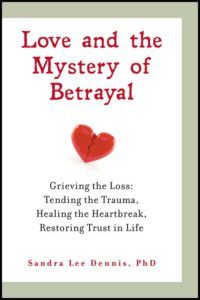
Buy Love and the Mystery of Betrayal on Amazon
The post When You Are Told, “Stop Being a Victim!” appeared first on Sandra Lee Dennis, PhD.
“Stop Being a Victim!”
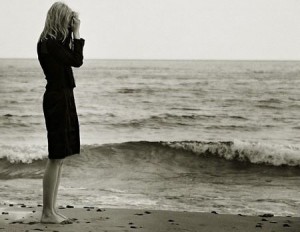 The term victim has become a dirty word in some circles.Should someone claim they have been injured or victimized in a relationship—especially if their wounds are not physical, they are met with shaking heads or raised eyebrows.
The term victim has become a dirty word in some circles.Should someone claim they have been injured or victimized in a relationship—especially if their wounds are not physical, they are met with shaking heads or raised eyebrows.
I cannot tell you how many times, when I was reeling in shock after discovering I had been living a lie, I was advised (often with the best intentions) to “stop being a victim!”
Quietly reminded, “there is no such thing as a victim;” I was accused of not taking responsibility for my part, suspected of wallowing, of staying stuck in a “poor me” mindset, of character assassination for suggesting I had been harmed, for downplaying my flaws, for emotional instability, and, above all, for taking satisfaction in forming a new and exciting identity as a victim!
I was highly susceptible to believing these disdainful attitudes because for most of my life, I, too felt this way about victims. I always considered myself a resilient person who bounced back with ease from life’s slings and arrows. I could not understand why others did not do the same. That is, until being abandoned fractured my world; and, despite all my efforts, I could not shake the feeling of shame at having been victimized. It took a long while before I could stop blaming myself. But now I believe I was right and want to challenge the prejudice we have against victims.
We can see how absurd the belief in “no victims” is when we consider natural disasters, war, genocide, rape, epidemics, children abandoned or born into poverty or abusive families. Yet, we still rationalize misfortune when it is close to us, blaming the victim for their plight—even if we clothe our blame in concepts such as sin, karma or the law of attraction.
Victims Reveal our Vulnerability
I began to wonder why we are so anxious to blame victims. To be a victim implies helplessness and acute vulnerability. Some do adopt a kind of permanent “victim identity” that causes us to be suspicious of true victims. But, primarily, by denying victim status, we attempt to banish our own fears of harmful events.
We like to believe we live in a predictable world, a safe and moral universe where our actions have consequences. If only we live, think and act well, terrible things won’t happen to us. “What goes around comes around” gives us a sense that we have some control over our destiny. That misfortune is random and can happen to anyone at any time is terrifying. Bad things happen to good people.
When we blame the victim, it offers us a last grasp at control. If they had behaved differently (like us), this bad thing would not have happened to them. At the deepest spiritual levels there may be some truth that the victim of abuse, accident, disease, or crime shares responsibility for his or her suffering. On the human level, however, when we or someone close to us is suffering, these attitudes not only cover fear of our own powerlessness, but shut off compassion.
Facing the Truth Brings on an Existential Crisis
When our reality has been shattered, until we accept the totality of the event—including the victimhood, helplessness and powerlessness—we cannot fully grieve what has been lost, nor can we fully heal. As I explore in my book, survivors of misfortune, or mistreatment at the hands of others, need to claim the truth of being victimized, and face the existential crisis it initiates, to begin to free themselves of what happened.
When life deals us or someone we love a cruel blow, it shatters a certain innocence and trust. We are forced to grapple with questions of good and evil. We have to dig deep inside and dispel many illusions to find the answers.
I learned that acknowledging “I am a victim” could be a statement of profound courage, compassion and insight. We need to stand on the firm ground of the truth to find our way to the strength of spirit that can endure regardless of what happens.
Adapted from Love and the Mystery of Betrayal: Recovering Your Trust and Faith after Trauma, Deception, and Loss of Love —now available in print and ebook.
The post “Stop Being a Victim!” appeared first on .
Is it True, There Are No Victims?
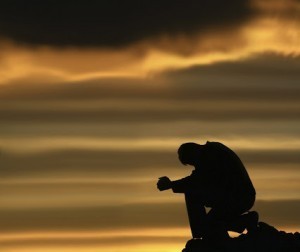 In this culture we like winners and disdain losers; we celebrate power and turn away from the powerless. And, we do not like victims. The term victim has even become a dirty word in some circles.
In this culture we like winners and disdain losers; we celebrate power and turn away from the powerless. And, we do not like victims. The term victim has even become a dirty word in some circles.Should someone claim they have been injured or victimized in a relationship—especially if their wounds are not physical, they are met with gasps of surprise, shaking heads or raised eyebrows.
Accused of not taking responsibility for their role in the abuse, they are suspected of wallowing, of staying stuck in a “poor me” mindset, of character assassination, resentment and blame, of denying their flaws, of emotional instability, and, finally, of taking satisfaction from forming a new and exciting identity as a victim!
For most of my life, I have felt this way about victims. I always considered myself a resilient person, bouncing back with some ease from life’s slings and arrows. I could not understand why others did not do the same. That is, until being abandoned fractured my world; and, despite all my efforts, I could not shake the feeling of having been victimized. And I blamed myself mercilessly for these thoughts and feelings.
We can see how absurd the belief in “no victims” is when we consider natural disasters, war, genocide, epidemics, children abandoned or born into poverty or abusive families. Yet, we still rationalize misfortune when it is close to us, often blaming the victim for their plight, clothed in concepts such as sin, karma or the law of attraction.
Victims Reveal our Vulnerability
Why are we so anxious to blame victims? To be a victim implies helplessness and acute vulnerability. By denying victim status, we attempt to chase away our own fears of harmful events. We like to believe we live in a predictable world, a safe and moral universe where our actions have consequences.
If only we live, think and act well, terrible things won’t happen to us. “What goes around comes around” gives us a sense that we have some control over our destiny. I certainly believed that, with all my work on myself and my spiritual practices, I was protected, no matter what. But I was wrong.
The randomness of victimhood scares us. Bad things happen to good people. That misfortune is random and can strike anyone at anytime is terrifying. Blaming the victim offers a last grasp at control. At the deepest spiritual levels there may be some truth that the victim of abuse, accident, or crime shares responsibility for his or her suffering. On the human level, however, when we or someone close to us is suffering, these attitudes act as shields that keep us from compassion, from feeling the pain.
When one’s reality has been shattered, without acceptance of the totality of the event—including the victimhood, helplessness and powerlessness—we cannot fully grieve what has been lost, nor can we fully heal. As survivors of misfortune, or mistreatment at the hands of others, we need to claim our truth—and face the existential chasm it implies—if we are to free ourselves of the consequences.
When fate deals us or someone we love a cruel blow, we are challenged to surrender to powers beyond our control or comprehension. I have learned that acknowledging “I am a victim” can be a statement of profound courage, compassion and insight. From that ground of truth we move forward.
Adapted from Love and the Mystery of Betrayal —now available in print and ebook.
The post Is it True, There Are No Victims? appeared first on .
September 26, 2014
Betrayal: Did You Choose Your Reality?
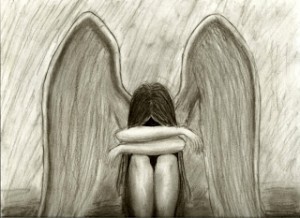 After a mind-bending abandonment by my long-time partner I received a lot of well-meaning advice. Some friends recommended to me, if I was serious about healing, that I take “one-hundred percent responsibility for everything that happened.”
After a mind-bending abandonment by my long-time partner I received a lot of well-meaning advice. Some friends recommended to me, if I was serious about healing, that I take “one-hundred percent responsibility for everything that happened.”
When I expressed my pain and outrage, others suggested more benignly, “you know, there are two sides to every story,” “everything is for the best,” or “with a couple, everything is fifty/fifty.”
I searched diligently in myself to find the bright side, and the “fifty/fifty responsibility” key. For I, too, had accepted these attitudes—almost as articles of faith—until I went through this emotionally violent event. Now I could no longer make these neat, tidy, appealing formulas, meant to erase all blame and resentment, and instill instant forgiveness, fit the facts of having my trust betrayed and my life shattered.
Attitude Is Everything
We live in a culture that is blind to betrayal and intolerant of emotional pain. In New Age crowds here on the West Coast, where your attitude is considered the sole determinant of the impact an event has on you, it gets even worse.In these New Thought circles, no matter what happens to you, it is assumed that you have created your own reality. Not only have you chosen the event, no matter how horrible, for your personal growth. You also chose how you interpret what happened—as if there are no interpersonal facts, only interpretations.
The upshot of this perspective is that your suffering would vanish if only you adopted a more evolved perspective and stopped feeling aggrieved. I was often kindly reminded (and believed it myself), “there are no victims.” How can you be a victim when you are responsible for your circumstances?
When you most need validation and support to get through the worst pain of your life, to be confronted with the well-meaning, but quasi-religious fervor of these insidious half-truths can be deeply demoralizing. This kind of advice feeds guilt and shame, inhibits grieving, encourages grandiosity and can drive you to be alone to shield your vulnerability.
Blame is a Defense Against Powerlessness
Betrayal trauma changes you. You have endured a life-altering shock, and are likely living with PTSD symptoms— hypervigilance, flashbacks and bewilderment—with broken trust, with the inability to cope with many situations, and with the complete shut down of parts of your mind, including your ability to focus and regulate your emotions.
Nevertheless, if you are unable to recognize the higher purpose in your pain, to forgive and forget and move on, you clearly have chosen to be addicted to your pain and must enjoy playing the victim.
And the worst is, we are only too ready to agree with this assessment! Trauma victims commonly blame themselves. Blaming oneself for the shame of being a victim is recognized by trauma specialists as a defense against the extreme powerlessness we feel in the wake of a traumatic event. Self-blame continues the illusion of control shock destroys, but prevents us from the necessary working through of the traumatic feelings and memories to heal and recover.
What is wrong with this picture? In the next post I will explore why we are so negative about victimhood.
Adapted from “Love and the Mystery of Betrayal” —now available in print and ebook.
The post Betrayal: Did You Choose Your Reality? appeared first on .
September 25, 2014
Goodreads Giveaway Winner!

Hello everyone,
Last week’s Goodreads’ giveaway has come to an end, and I am pleased to announce the winner: Congratulations to Wesley S. of Summit, WA. Your copy of “Love and the Mystery of Betrayal” is on its way to you!
Thank you to all 470 people who entered to win an autographed copy. I will likely do another giveaway within the next few weeks and will post notification here. To keep a closer eye out for Goodreads and /or Kindle giveaways, please follow me on Twitter, Goodreads or Facebook.
Meanwhile, the paperback is now available for purchase on Amazon.com as well as the ebook version.
The post Goodreads Giveaway Winner! appeared first on www.sandraleedennis.com.
September 13, 2014
The Stigma of Emotional Pain
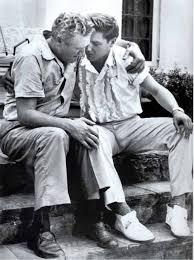 In the first tremors of the aftershock of my partner’s sudden exit from my life, when no one had a clue what I was going through, I got a lot of suggestions from friends and family. I was advised to count my blessings that he was gone, to let go, to get over it and to move on as quickly as possible.
In the first tremors of the aftershock of my partner’s sudden exit from my life, when no one had a clue what I was going through, I got a lot of suggestions from friends and family. I was advised to count my blessings that he was gone, to let go, to get over it and to move on as quickly as possible.
I was plied with well-meaning platitudes such as, “Men are like buses: One leaves and another pulls in,” or “Just be here now,” or “It is all good.” Forgiveness was advised by my spiritually-minded friends as the quick ticket to recovery and the best way to demonstrate my love. Just let go and forgive, and the pain, along with the accompanying bewilderment, angst and panic, would miraculously disappear—so I was told and believed myself.
No matter that I was walking down the street feeling as full of holes as a Swiss cheese, ready to check myself into the nearest psychiatric hospital, commit some unspeakable act of vengeance or wander in front of a passing car. If I could have forgiven I would have, but meanwhile I wanted to strangle anyone who suggested it.
All too often I was encouraged to get up, take a class, make new friends, volunteer, hike or practice more hot yoga. I had already tried most of those things, and was doing everything in my power to pull myself together, but nothing was working. I learned that complicated grief has its own timetable.
Emotional Pain Makes People Uneasy
Beyond the first few weeks, our society does not easily tolerant the pain and grief that follow the severing of deep attachments. We give the bereaved a few months. A divorce or a precipitous breakup is most often excused and casually brushed aside, while infidelity has almost become a joke. Broken relationships have become so commonplace we never even think about the devastation involved, as we sweep the anguish of each story aside with a shrug.
In our happiness-obsessed, “Prozac nation,” we consider intense suffering an aberration or an indication of weakness. The anxiety, heartache, nausea, obsessing and grief that I experienced for more than two years coping with PTSD are examples of the kind of suffering we shunt to the catchall categories of depression or self-indulgence, and treat with drugs, if we treat them at all.
We acknowledge physical pain but talk little about the debilitation of emotional injuries and even stigmatize emotional and mental illness. I am now convinced huge numbers of people silently endure protracted experiences of psychic pain. We dislike and shun people we judge to be “wallowing” in personal suffering, so we work hard to hide our own, making it more difficult to get the help we need to recover.
Why? Because emotional pain makes people uncomfortable. Those who have not faced the depths of their own pain—and so few of us have—are doubly afraid or ill at ease when they see another suffering. If someone asks how we are, convention dictates we are to say, “Fine, thanks!” Or, if we do feel inclined to make some kind of authentic response, we sense that we’d better make it short—no details, please.
Even those who know we must be hurting and want to help probably feel awkward and do not know what to say. We all tend to be blind to the desolation of such life-transforming events—until we ourselves are mourning a loss. When one friend finally said, “I am so sorry this cruel thing happened to you. It must really hurt,” my heart melted with appreciation.
Adapted from “Love and the Mystery of Betrayal” —now available in print and ebook.
The post The Stigma of Emotional Pain appeared first on .
September 12, 2014
My Most Important Books
So many books I have felt this way about at the time of reading. Standouts that come to mind:
"The Varieties of Religious Experience" (James)
"In Search of the Miraculous" (Ouspensky)
"The Passion of the Western Mind"(Tarnas)
"Trauma and Recovery" (Herman)
"The Duino Elegies" (Rilke)
"Thoughts Without a Thinker" (Epstein)
"When Things Fall Apart" (Chodron)
"Mystical Hope" (Bourgeault)
"Leaves of Grass" (Whitman)
"The Power of Now" (Tolle)
"The Pearl Beyond Price" (Almaas)
"The Dark Sun" (Marlan)
"Love in the Time of Cholera" (Marquez)
"Theory of Eternal Life" (Collin)
"Memories, Dreams and Reflections" (Jung)
"The Tibetan Book of Living and Dying" (Sogyal Rinpoche)
The Bible—Psalms, Song of Solomon and The Book of Job.

